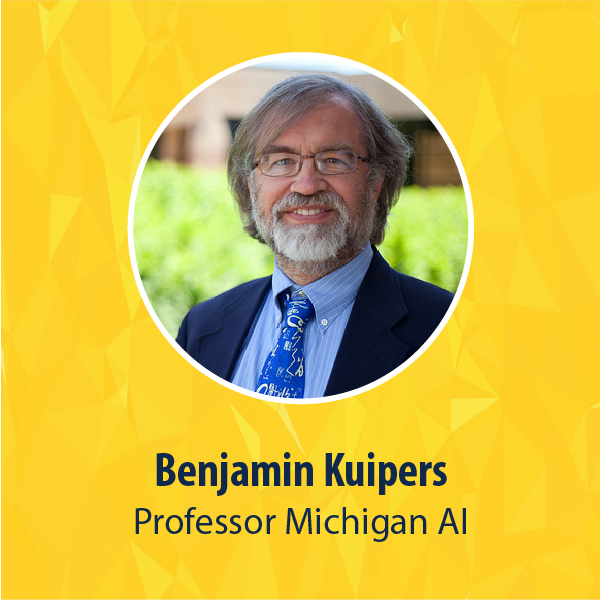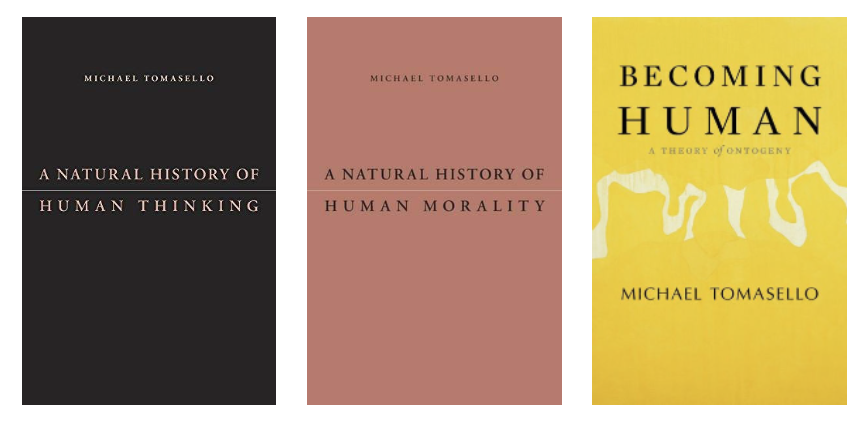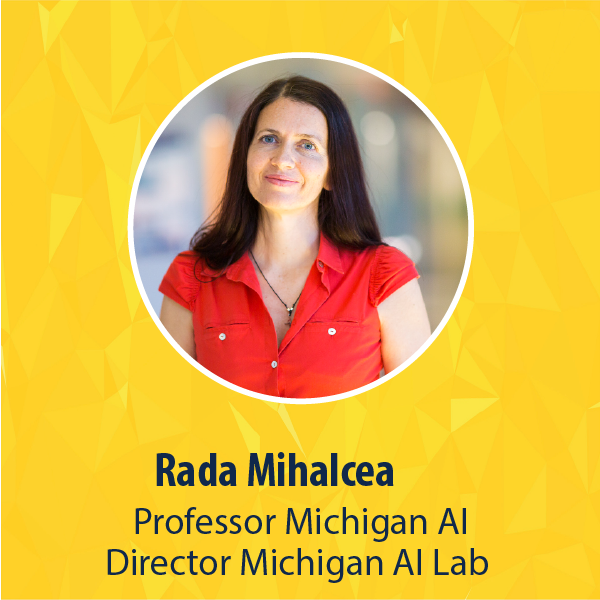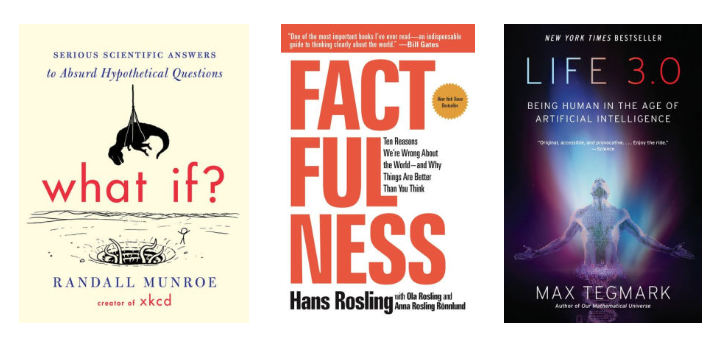Book Recommendations - Summer 2019
Prof. Benjamin Kuipers recommends:

I am currently reading a sequence of three books by Michael Tomasello that I think say something important about the contribution of different kinds of cooperation and collaboration to human success, individually and as a species. The books are:
- A Natural History of Human Thinking (2014)
- A Natural History of Human Morality (2016)
- Becoming Human: A Theory of Ontogeny (2019)

All of these focus on the evolution of cooperation, which he argues is responsible for the dominance of the human species on our planet. He uses experimental evidence about the cognitive capabilities of great apes as a proxy for the capabilities of the last common ancestor shared by humans and great apes, about six million years ago. He observes that great apes are capable of sophisticated knowledge about physical causality including tool use, and even knowledge of intentionality: that is, the beliefs, goals, and plans that they and other individuals may have in a given situation. However, this knowledge is “individual intentionality”, used for individual competitive advantage in pursuing the agent’s own goals.
He argues that about 400,000 years ago, early humans began to evolve the capabilities for “joint intentionality”, the ability to pursue shared goals with another agent. This has a number of implications, including cognitive development of the ability to infer how the partner sees the world, the ability to communicate information that the partner needs, and the need for the partner to trust and believe what the agent is attempting to communicate.
With the emergence of modern humans about 150,000 years ago, this progresses to “collective intentionality”, involving shared goals with a larger population of other agents, leading to the development of a shared culture of beliefs, goals, and norms. As this culture develops, individuals acquire its structure, not as learned knowledge about the beliefs of other individual agents, but learned from infancy and childhood as “the way things are”. Norms progress from ways to maintain a collaboration with another specific individual to “how things should be done” to participate successfully in the society.
This evolutionary picture has implications for the nature of human thinking, human morality, and human child development (“ontogeny”).
These books by Michael Tomasello fill in some important gaps in my understanding of how ethics contributes to the survival and thriving of human society, discussed in:
- Non-Zero: The Logic of Human Destiny, by Robert Wright (2000)
- The Better Angels of Our Nature: Why Violence Has Declined, by Steven Pinker (2011)
- Enlightenment Now: The Case for Reason, Science, Humanism, and Progress, by Steven Pinker (2018)
Prof. Rada Mihalcea recommends:

If I were to pick only three books from among the science books I read over the past year, I would choose the ones that I quoted the most in my conversations with others. The books are:

Life 3.0 - Being Human in the Age of Artificial Intelligence, by Max Tegmark (2017)
As I was reading this book, I first liked it, then disliked it, then liked it again, and ended up loving it. I am not even sure if I love the book itself, or the thoughts that it provoked, but it probably doesn’t matter. The book is very dense in interesting aspects of life in the presence of an advanced AI. The ideas that I found the most intriguing: (i) It’s not a matter of if, but a matter of when will our planet end. Technology is our only hope to transcend our own condition. (ii) The right question to ask is not “how will the future of AI look like” but “how would we like the future of AI to look like.” (iii) Consciousness (defined as the sensing of experiences) can happen with small entities (e.g., humans), but it’s much harder with large entities (e.g., the universe).
Teaser: The book also includes an AI-based scheme to get rich using Amazon Mechanical Turk (don’t put it in practice!)
Factfulness - Ten Reasons We’re Wrong About the World – and Why Things Are Better Than You Think, by Hans Rosling, Ola Rosling, Anna Rosling (2018)
Let me start by admitting that I failed miserably the survey from the beginning of this book, which asks questions about the state of the world: “What is the life expectancy of the world today?” Or “How many people in the world have some access to electricity?” As it turns out, most people will fail this survey: according to the Roslings, our view of the world is largely outdated, as the statistics that we generally use as reference correspond to the state of the world in 1960. And yes, almost 60 years have passed since! The book is a wonderful account of the current state of the world – as seen by a physician, a statistician, and a designer – and also a positive message that the world is in a much better state than we often think it is.
Bonus: Anna Rosling’s Ted Talk https://www.ted.com/talks/anna_rosling_ronnlund_see_how_the_rest_of_the_world_lives_organized_by_income?language=en
Dollar Street: An interactive website to see how people really live https://www.gapminder.org/dollar-street/matrix
What If?: Serious Scientific Answers to Absurd Hypothetical Questions, by Randall Munroe (2014)
“Delightful” is probably the right word for this book; or rather, “scientifically delightful.” This book is a collection (that you can read in any order!) of questions asked on the popular XKCD website, along with solid scientific answers. The absurdity of many of the questions make the book amusing – e.g., “How much computing power could we achieve if the entire world population will start doing calculations?” (Just imagine the whole world stopping from what they are doing to do instead calculations! Turns out even back in 1994 a desktop computer exceeded the combined computing power of the humanity), or “When, if ever, will the bandwidth of the Internet surpass that of FedEx?” (Believe it or not – FedEx throughput is currently a hundred times that of the Internet). At the same time, the clearly explained science in the answers make the book a rich learning resource covering a wide variety of disciplines – biology, geology, computing, and more.
Bonus for Ann Arbor locals: Randall Munroe will be in town on September 6, hosted by Literati. https://www.literatibookstore.com/event/literati-bookstore-presents-randall-munroe
Want even more recommendations? The other two contenders for my top science books over the past year were:
- The Immortal Life of Henrietta Lacks, by Rebecca Skloot (2010)
- Why We Sleep: The New Science of Sleep and Dreams, by Matthew Walker (2017)